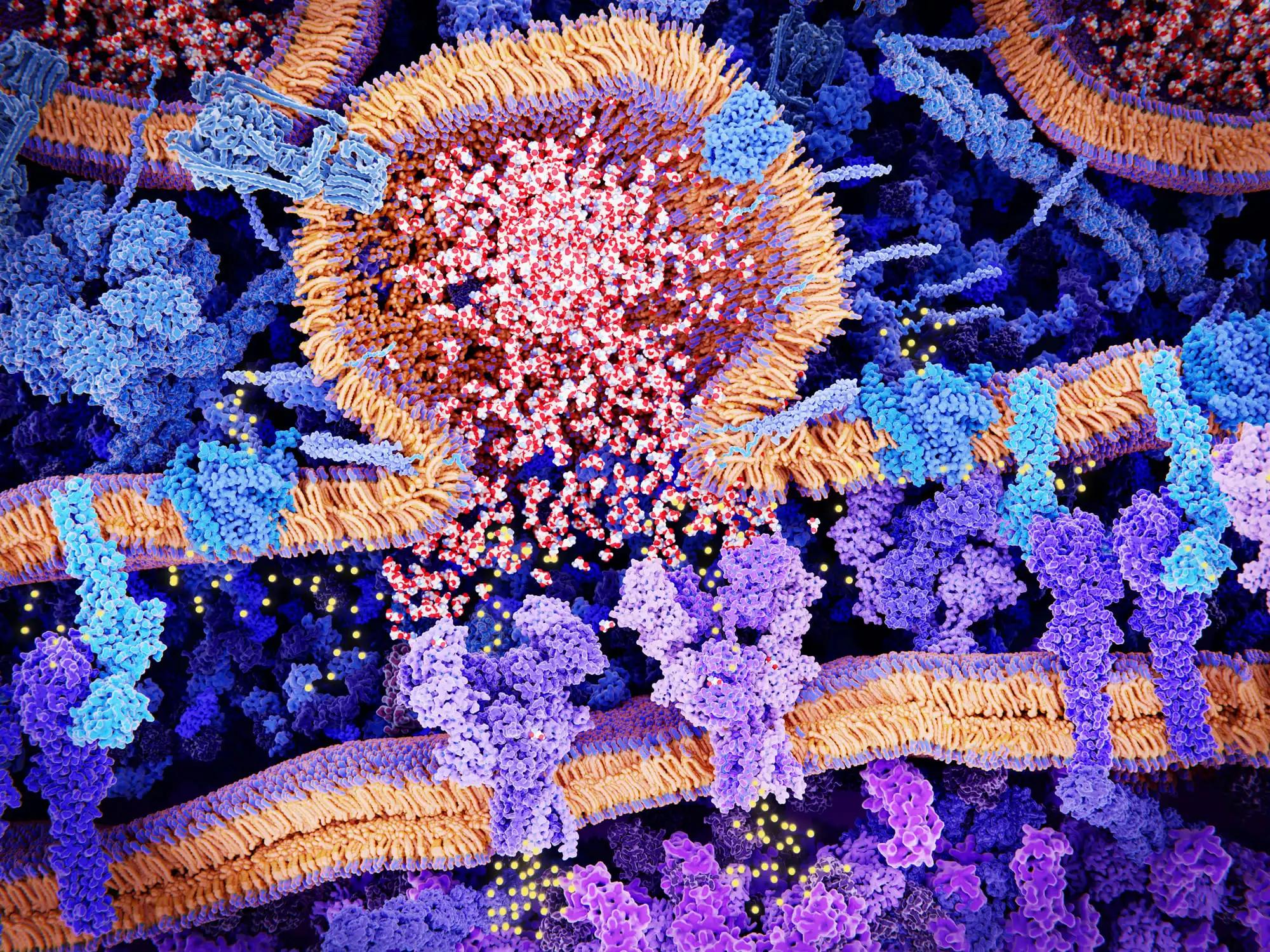KEY TAKEAWAYS
- The CHRYSALIS phase 1 study is a retrospective analysis of IRAEs in patients treated with the fully humanized EGFR-MET, Amivantamab.
- The study evaluated the incidence, risk factors, and subsequent management of IRRs associated with Amivantamab.
- Researchers analyzed patients who received the recommended intravenous dose of Amivantamab and used mitigations for IRRs.
- The study found that 67% of patients experienced IRRs, which were primarily low-grade and confined to the initial infusion.
- The clinical manifestations of IRRs included shivering, shortness of breath, sudden skin reddening, nausea, thoracic uneasiness, and emesis.
- The study recommends monitoring IRRs during the initial administration of Amivantamab and prompt intervention upon the first manifestation of IRR signs or symptoms as a standard practice.
The fully humanized EGFR-MET bispecific antibody, Amivantamab, has demonstrated antitumor activity in various cases of non-small cell lung cancer (NSCLC) driven by EGFR and MET. Additionally, the safety profile of this antibody aligns with its associated on-target activities. Amivantamab is frequently associated with infusion-related reactions (IRRs), as reported. The researchers conducted a retrospective analysis of the incidence, risk factors, and subsequent management of immune-related adverse events (IRAEs) in patients treated with amivantamab. This analysis comprised patients who received the recommended intravenous amivantamab dose (1050 mg for those weighing less than 80 kg and 1400 mg for those weighing 80 kg or more) as part of the CHRYSALIS phase 1 study for advanced non-small cell lung cancer with epidermal growth factor receptor mutations. The mitigations for IRR comprised administering a split first dose of 350 mg on day 1, followed by the remaining dose on day 2, reducing the initial infusion rates with proactive infusion interruption, and administering steroid premedication before the initial dose. Pre-infusion administration of antihistamines and antipyretics was mandated for all dosages. Corticosteroids were administered at the discretion of the medical team following the initial dosage.
Till March 30th, 2021, 380 patients were administered amivantamab. Incidence rate ratios (IRRs) were observed in 256 (67%) patients. The clinical manifestations of IRR encompassed shivering, shortness of breath, sudden skin reddening, nausea, thoracic uneasiness, and emesis. Most of the 279 infusion reaction events were classified as grade 1 or 2, while grade 3 and 4 infusion reactions were observed in 7 and 1 patients, respectively. Ninety percent of infusion-related reactions (IRRs) were observed during the first cycle, specifically on day 1 (C1D1). The median time for the onset of the first IRR during C1D1 was 60 minutes. It was observed that the occurrence of IRRs during the first infusion did not affect the subsequent infusions. As per the established protocol, the incidence of infusion-related reactions (IRR) was addressed on the first day of cycle 1 through the suspension of infusion (56% [214/380]), resumption at a lower rate (53% [202/380]), and discontinuation of infusion (14% [53/380]). 85% (45/53) of patients who had C1D1 infusions terminated received C1D2 infusions. Four patients (1% [4/380]) terminated their treatment regimen due to the incidence of infusion-related reactions (IRR). In research endeavors aimed at elucidating the underlying mechanism(s) of an infusion reaction (IRR), no discernible pattern was observed between patients who experienced IRR and those who did not. The incidence of infusion-related reactions (IRRs) associated with amivantamab was primarily of low grade and confined to the initial infusion, with infrequent manifestation during subsequent dosing. It is recommended to include vigilant observation for infusion-related reactions (IRRs) during the initial administration of amivantamab and prompt intervention upon the first manifestation of IRR signs or symptoms as a standard practice.
Source: https://pubmed.ncbi.nlm.nih.gov/36868177/
Clinical Trial: https://clinicaltrials.gov/ct2/show/NCT02609776
Park K, Sabari JK, Haura EB, Shu CA, Spira A, Salgia R, Reckamp KL, Sanborn RE, Govindan R, Bauml JM, Curtin JC, Xie J, Roshak A, Lorenzini P, Millington D, Thayu M, Knoblauch RE, Cho BC. Management of infusion-related reactions (IRRs) in patients receiving amivantamab in the CHRYSALIS study. Lung Cancer. 2023 Apr;178:166-171. doi: 10.1016/j.lungcan.2023.02.008. Epub 2023 Feb 15. PMID: 36868177.



